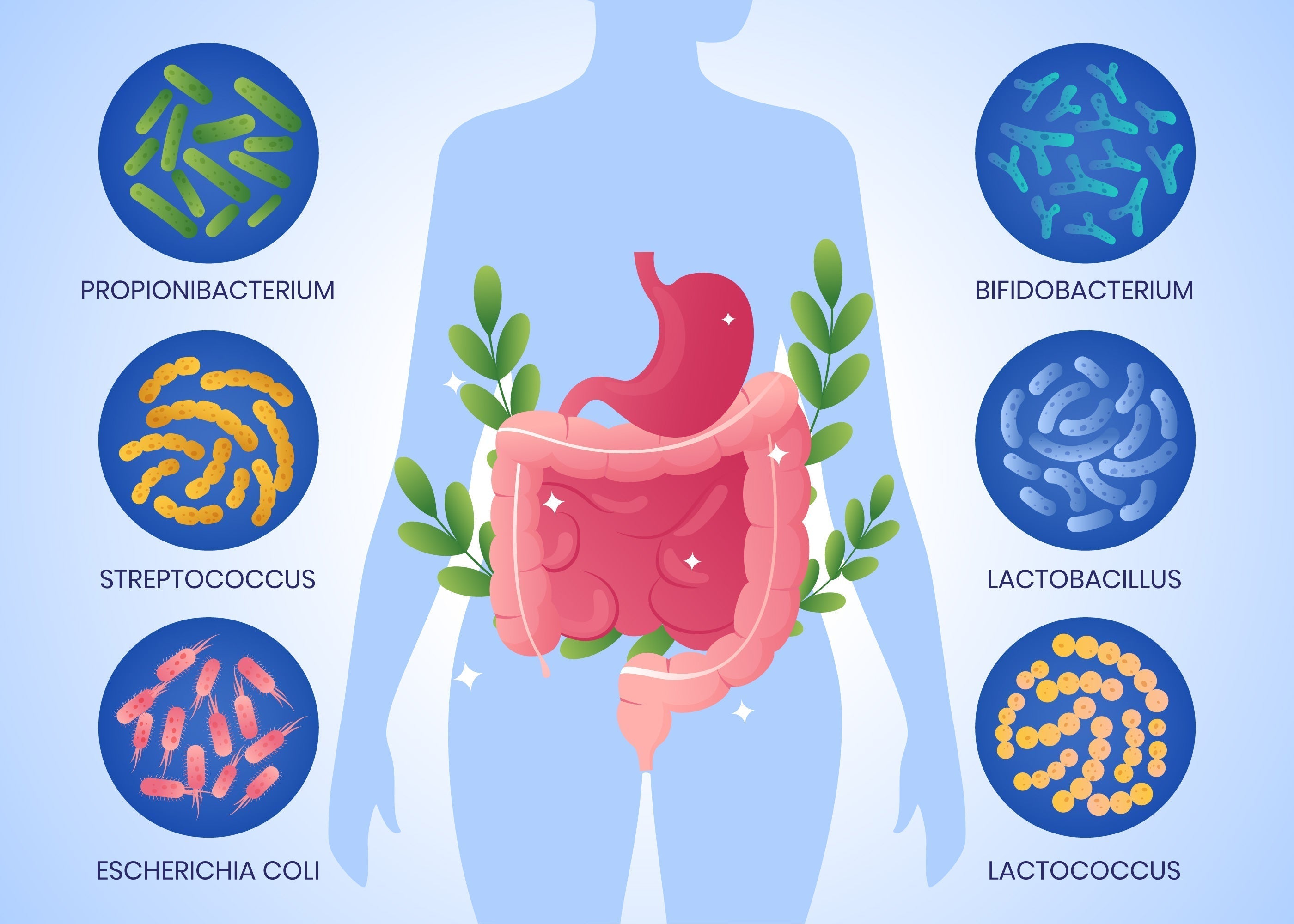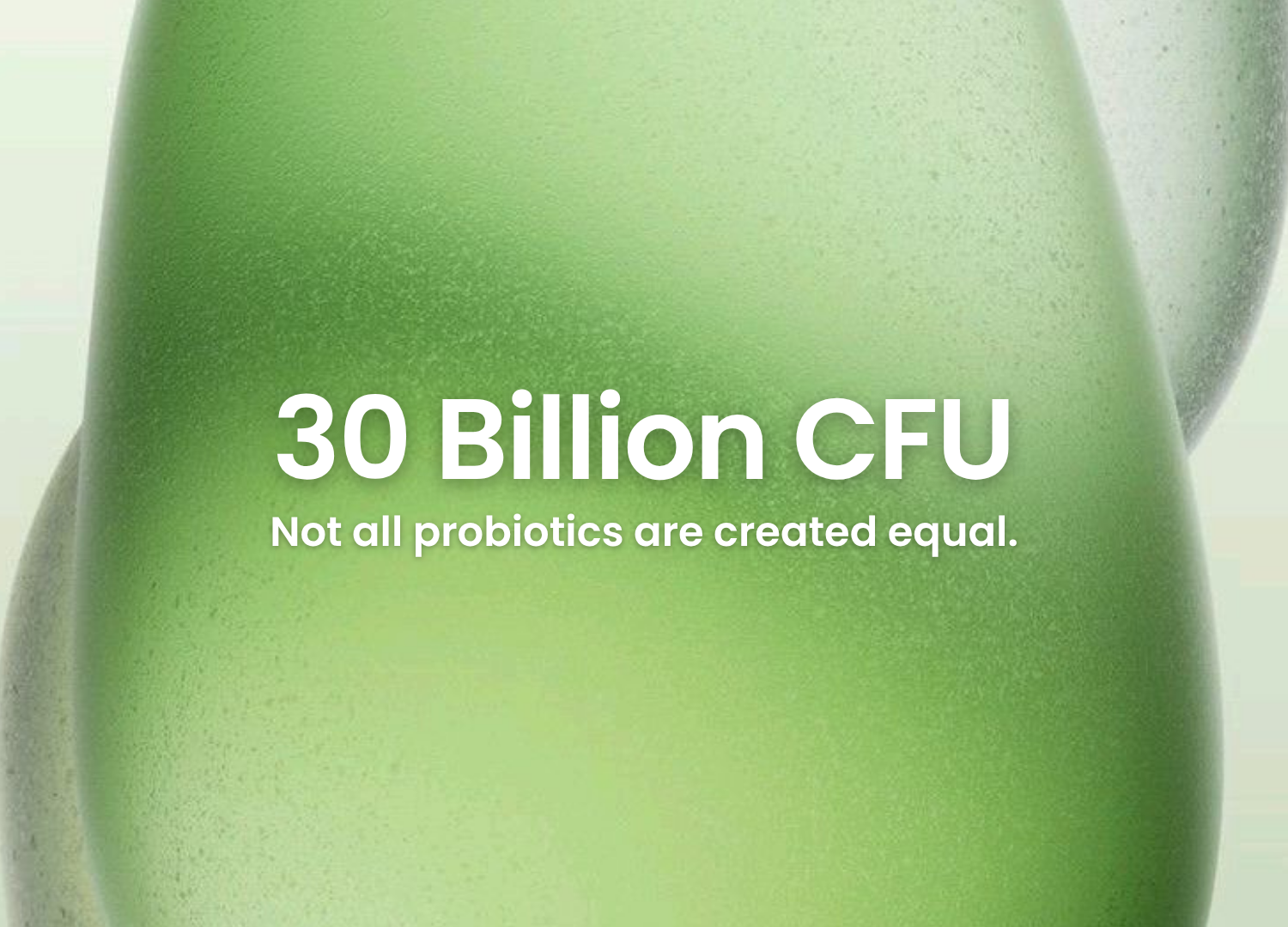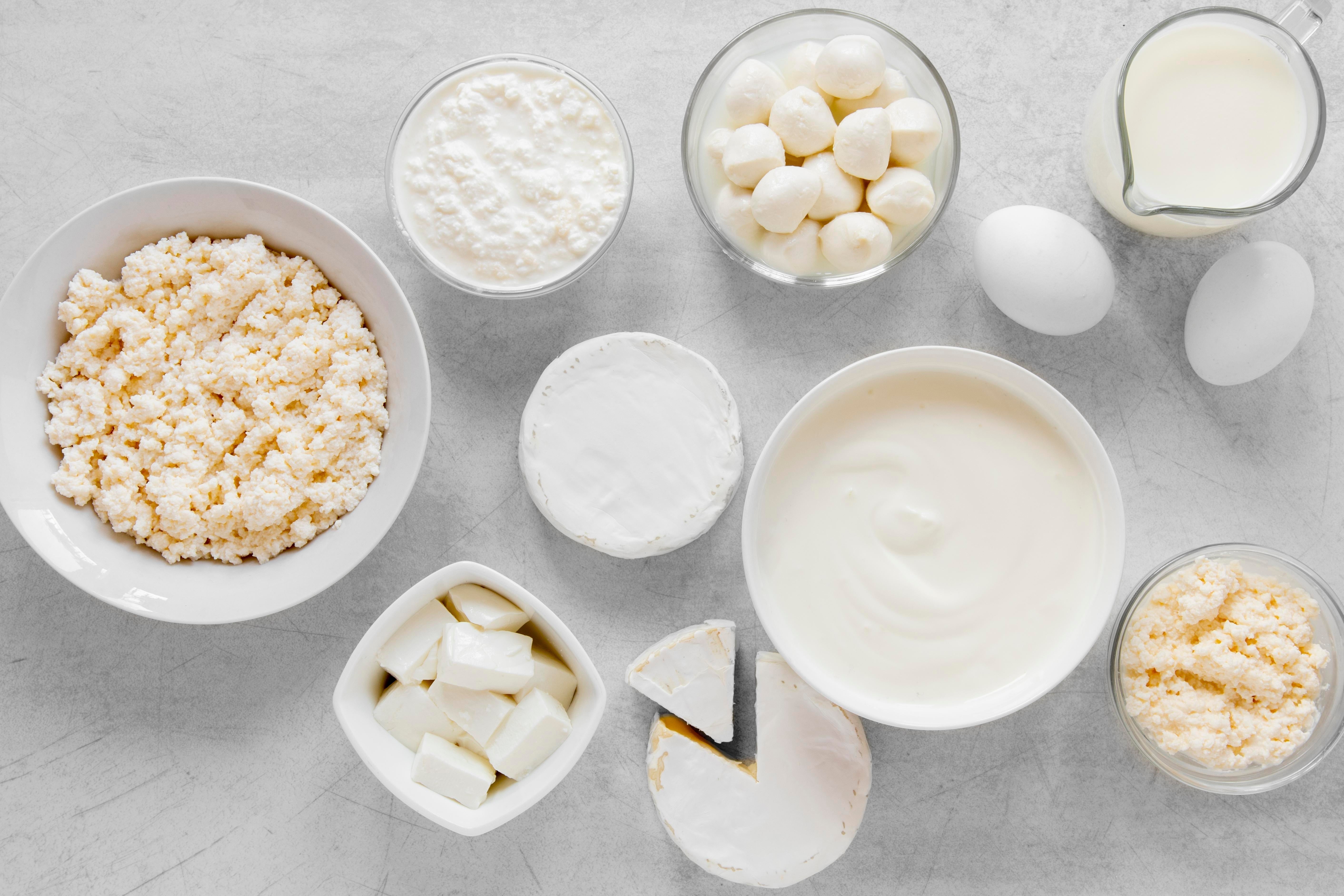
How Alcohol Hurts Your Gut Microbiome (and How to Heal It)
TL;DR
Yes — even moderate drinking can disrupt your gut microbiome by harming beneficial bacteria, weakening your gut lining, and triggering inflammation. This gut imbalance can lead to bloating, low mood, fatigue, and make hangovers worse.
The good news? You can help repair it with a mix of probiotics, prebiotics, gut-friendly foods, and smarter drinking habits — all of which can help restore balance and protect your overall health.
The Gut Microbiome 101
Your gut is home to trillions of bacteria, fungi, and other microbes — collectively called the microbiome. Together, they help:
- Digest food
- Produce vitamins
- Regulate immune responses
- Communicate with your brain via the gut-brain axis
A healthy, diverse microbiome is associated with improved digestion, stable energy levels, a balanced mood, and enhanced immunity.
So, Can Alcohol Really Damage It?
Short answer: Yes.
Alcohol is a known gut disruptor. Even at moderate levels, it can negatively impact your microbiome in a few key ways:
1. It reduces microbial diversity
Studies show that alcohol intake decreases levels of beneficial bacteria like Lactobacillus and Bifidobacterium, while sometimes allowing less-friendly strains to overgrow.
This imbalance (called dysbiosis) is linked to bloating, irregular digestion, and increased gut permeability.
2. It weakens your gut lining
Alcohol irritates the gut lining, making it more permeable, commonly referred to as “leaky gut.”
When the gut barrier is compromised, toxins and bacterial fragments can enter the bloodstream. This sparks an immune reaction and inflammation throughout your body, which contributes to hangovers, fatigue, brain fog, and even longer-term health concerns.
3. It ramps up inflammation
This gut leakage activates immune cells, leading to systemic inflammation. Over time, chronic low-grade inflammation is linked to issues like mood disorders, weight gain, and reduced metabolic health.
How to Fix It (and Protect Your Gut)
Fortunately, your gut is remarkably resilient. Even if alcohol has thrown your microbiome out of balance, there are evidence-based ways to help it recover and rebuild, so you can support your digestion, mood, and energy long-term.
1. Load up on probiotics and prebiotics
Your first line of defense (and repair) is restoring the balance of bacteria in your gut.
- Probiotics are live, beneficial bacteria. Strains like Lactobacillus rhamnosus and Bacillus coagulans can help repopulate your gut, crowd out less desirable microbes, and rebalance your ecosystem.
- Prebiotics are types of fibers that these good bacteria love to eat, like inulin, fructooligosaccharides (FOS), and resistant starch. They pass undigested to your colon, where your microbes ferment them into short-chain fatty acids (SCFAs), which heal the gut lining and lower inflammation.
Together, probiotics + prebiotics (sometimes called synbiotics) work hand-in-hand to rebuild a healthier, more diverse microbiome.
How to get them:
- Food sources: yogurt, kefir, kimchi, sauerkraut, miso (for probiotics); garlic, onions, leeks, asparagus, bananas, oats, cold potatoes (for prebiotics).
- Targeted supplements: especially useful after alcohol disrupts your gut, when diet alone might fall short.
2. Support your gut lining
When alcohol compromises your intestinal barrier, it’s like poking tiny holes in a protective wall. That’s why “leaky gut” can lead to fatigue, skin issues, or feeling generally inflamed.
Certain nutrients directly nourish the gut lining:
- L-glutamine: an amino acid that fuels the cells lining your intestines, helping them repair and seal gaps.
- Zinc: supports tight junction proteins that keep gut cells snug together.
- Collagen-rich foods: like bone broth, slow-cooked meats, or gelatin-based snacks, provide building blocks for maintaining structural integrity.
A healthier barrier means fewer toxins leak through to trigger your immune system, which translates to less bloating, brain fog, and low-grade inflammation.
3. Focus on anti-inflammatory nutrients
Because gut disruption triggers an immune response, calming inflammation is crucial for recovery.
- Curcumin (the active compound in turmeric) has well-documented anti-inflammatory and antioxidant effects.
- Omega-3 fatty acids (from fatty fish, flax, and chia) help regulate inflammatory pathways and support gut cell membranes.
- Citrus bioflavonoids and vitamin C help protect tissues and reduce oxidative stress.
Less inflammation means fewer headaches, clearer thinking, and a more stable mood — all of which often take a hit after drinking.
4. Drink smarter, not just less
The best way to protect your gut is to minimize direct damage. That doesn’t mean giving up your social life — just being a little more strategic.
- Eat before drinking to slow absorption.
- Alternate alcoholic drinks with water.
- Opt for lower-sugar options — excess sugar feeds harmful gut bacteria and spikes inflammation.
5. Be consistent (even on non-drinking days)
Your gut microbiome thrives on stability. That means keeping up with probiotics, fiber-rich foods, and anti-inflammatory nutrients every day, not just after a heavy night out. A strong, diverse microbiome is more resilient — so the occasional glass of wine or cocktail does far less long-term harm.
And if you do enjoy regular nights out, having a daily gut support routine helps your system stay balanced, recover faster, and reduce those next-day regrets.
A Quick Note on Multi Fuel
If you’re looking for a simple way to support your gut, liver, and inflammation at the same time — especially around drinking — Multi Fuel combines probiotics, prebiotics, DHM, curcumin, and citrus flavonoids in one formula. It’s a straightforward option for people who want to keep enjoying social nights without sacrificing gut health.
Final Thoughts: Your Gut Can Bounce Back
So, does alcohol damage your gut microbiome? Absolutely — but it doesn’t have to be permanent.
By feeding your microbiome with the right foods, reinforcing your gut lining, managing inflammation, and making smarter choices when you drink, you can maintain a healthier gut environment — which means better digestion, mood, energy, and fewer rough mornings after.




